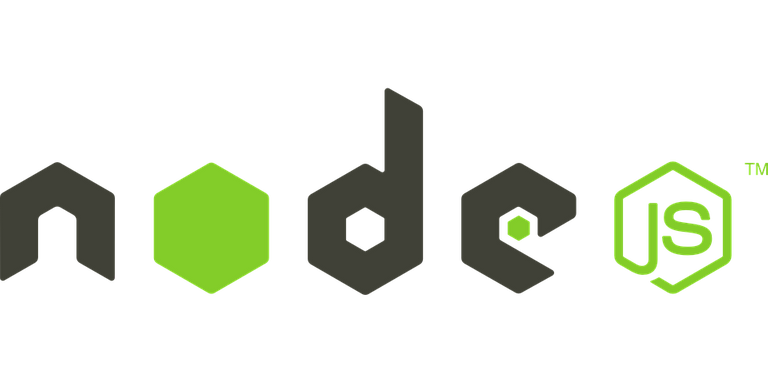
Project Details
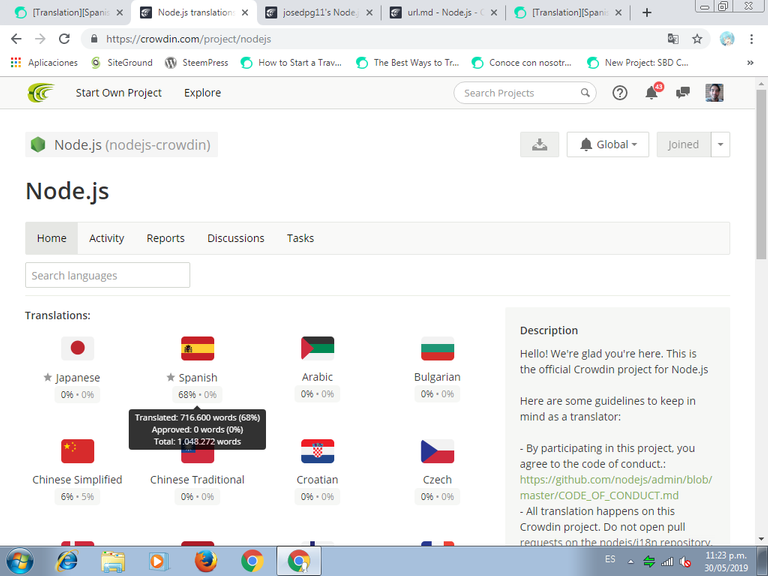
Node.js is an open-source, cross-platform JavaScript run-time environment that executes JavaScript code outside the browser.
Node.js brings event-driven programming to web servers, enabling development of fast web servers in JavaScript. Developers can create highly scalable servers without using threading, by using a simplified model of event-driven programming that uses callbacks to signal the completion of a task. Node.js connects the ease of a scripting language (JavaScript) with the power of Unix network programming.
In easier to understand words: Node-js is a free platform whose goal is to provide its users the possibility to create lightweight and cost efficient web servers, how does Node.js do this?
Node.js handles web server connections in a way so they don´t take up as much space in a server, and thus, the owner of a project would not need to invest as much money in multiple servers to store so much information in Gigabytes.
Being an Open Source Project, Node.js possesses immense value for providing so much while at the same time being totally free.
Contribution Specifications
716,600 words have been translated so far in the Spanish translation folder of Node.js, which amounts to a total of 68% done in regards to the completion of the translation of this big project.
Translation Overview
In this contribution, I started translating the third url.md folder of Node.js.
URL stands for Uniform Resource Locator, colloquially termed a web address. It is a reference to a web resource that specifies its location on a computer network and a mechanism for retrieving it.
Uniform Resource Locators were defined in 1994 by Tim Berners-Lee, the inventor of the World Wide Web.
The format combines the pre-existing system of domain names (created in 1985) with file path syntax, where slashes are used to separate directory and filenames. Conventions already existed where server names could be prefixed to complete file paths, preceded by a double slash (//).
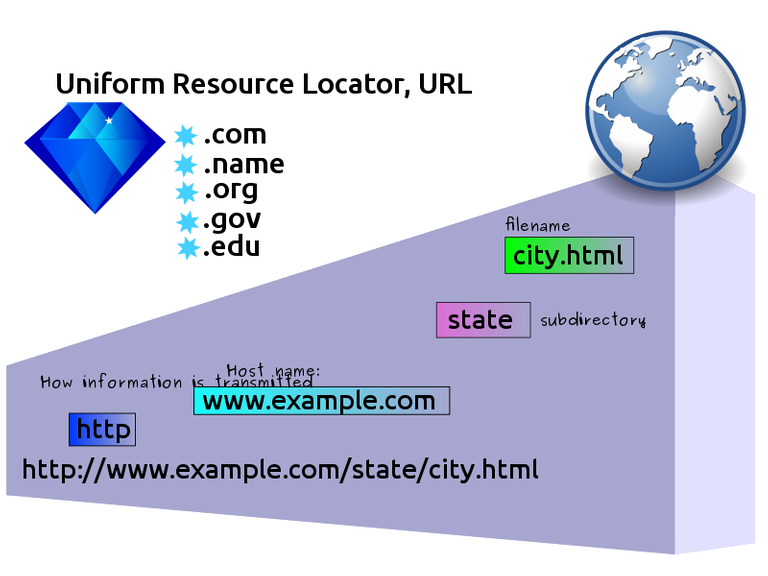
In this contribution, I took a different approach and decided to translate this folder in order, following the sequence of the information:
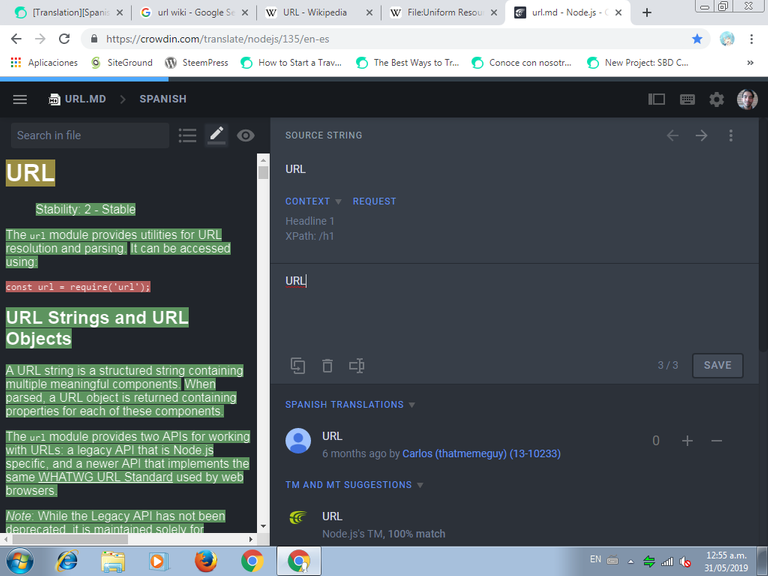
Here in the last image you can see that the green text is made up of strings that have already been translated, I decided to translate the strings in order this time and I feel comfortable using this approach.
This time, the concepts that showed the most relevance were Hash and Interface.
These are some examples of strings that show these words:
1 . HASH
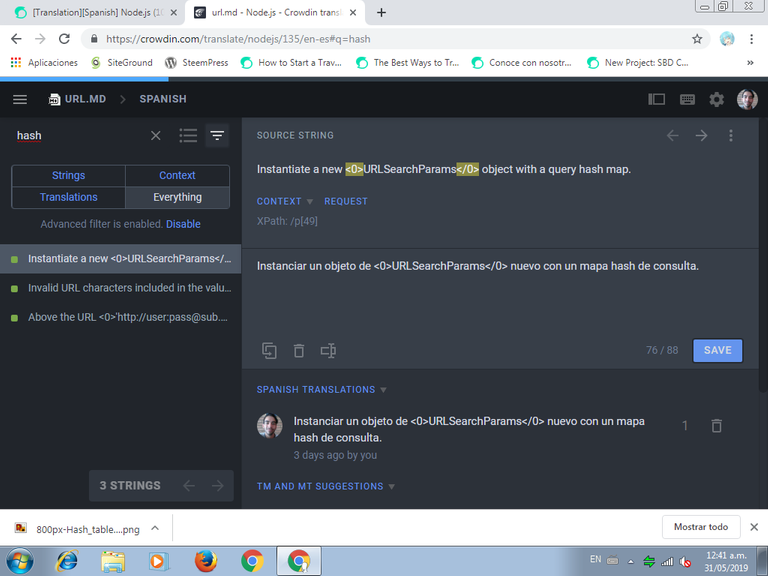
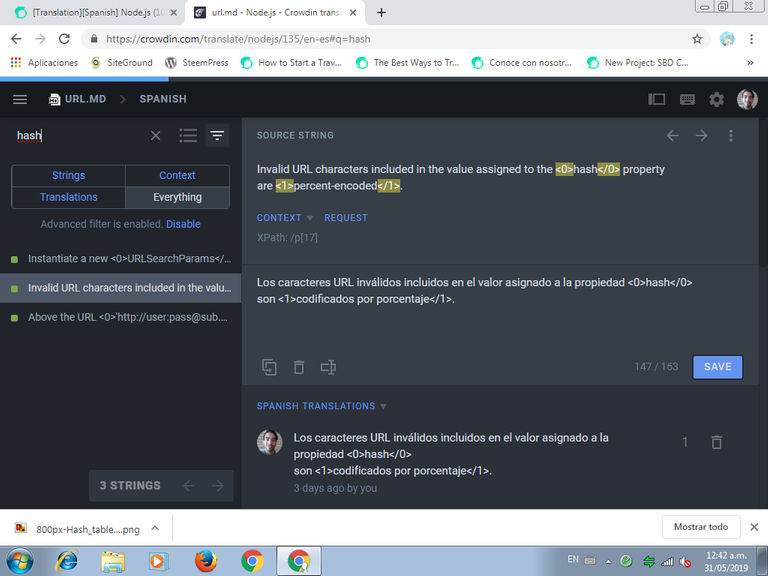
2 . INTERFACE
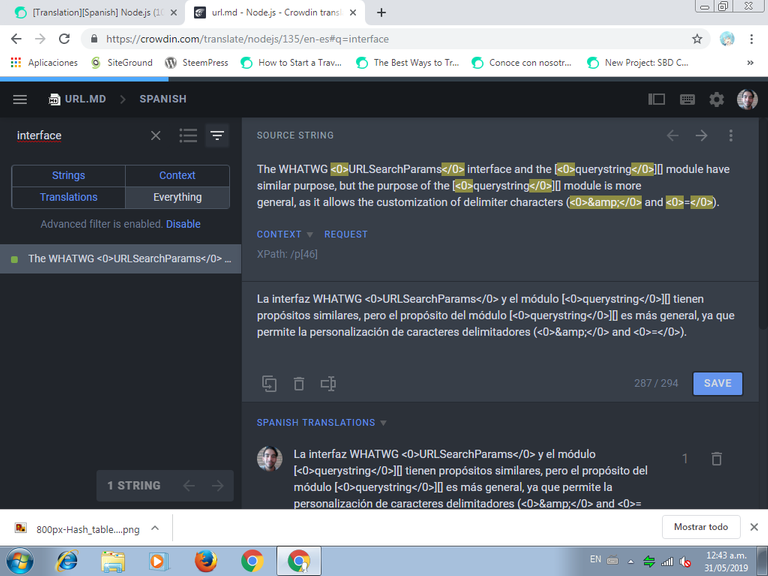
Those are the new words I found on url.md.
These are the meanings of the concepts I learned about while working on this contribution:
Hash:
A hash is used to index data. Hashing values can be used to map data to individual "buckets" within a hash table. Each bucket has a unique ID that serves as a pointer to the original data. This creates an index that is significantly smaller than the original data, allowing the values to be searched and accessed more efficiently.
In other words, hashes are functions that can be used to map data of arbitrary size onto data of a fixed size. The values returned by a hash function are called hash values, hash codes, digests, or simply hashes.
Hashes are also used to create checksums, which validate the integrity of files. A checksum is a small value that is generated based on the bits in a file or block of data such as a disk image.
Here we have an example of values being converted into hashes:

Interface:
The word interface has 2 meanings that are related to each other.
The first one is the more general one:
Interfaces are shared boundaries across which two or more separate components of a computer system exchange information.
And the second one is more specific in regards to object-oriented programming:
An interface in Javascript is a blueprint of a class. It has static constants and abstract methods.
They are used as mechanisms to achieve abstraction, since there can be only abstract methods in the Java interface, and not method bodies. Because of this, they are used to achieve abstraction and multiple inheritance in Java.
Total of words translated on this contribution, on the third url.md subfolder
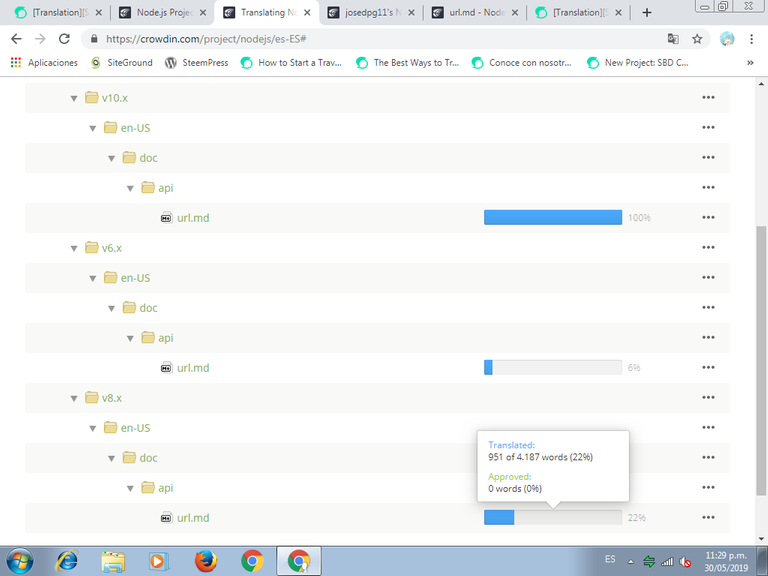
Here's the link to the url.md folder:
I translated an approximate amount of 950 words on this subfolder, the other 100 words I translated in this contribution were from the
http2.md and string_decoder.md subfolders.
You can verify all of the aforementioned activity reported in this contribution via the following link, please refer to the strings I translated on May 28th.
Languages
The project's source language is English and it is being translated into Spanish.
Also, Node.js is currently being translated into other 32 languages. I´m contributing to making this project accessible to the Spanish speaking community online.
Besides collaborating as a translator for Open Source Projects on Crowdin I also work as a Freelance Translator for a law firm in the US, I've been working for that company for one year and five months, translating sworn statements and legal documents from English to Spanish and viceversa.
Open Source Projects I've worked on and contributed to as a translator:
5 . Node.js
Word Count
Part 1: 1016; Part 2: 1026; Part 3: 1035; Part 4: 1092; Part 5: 1050; Part 6: 1147; Part 7: 1133; Part 8: 1049; Part 9: 1090; Part 10: 1093; Part 11: 1024; Part 12: 1102; Part 13: 1085; Part 14: 1049; Part 15: 1035; Part 16: 1059; Part 17: 1041; Part 18: 1114; Part 19: 1114; Part 20: 1033; Part 21: 1030; Part 22: 1059; Part 23: 1047; Part 24: 1070; Part 25: 1151; Part 26: 1039; Part 27: 1025; Part 28: 1035; Part 29: 1063; Part 30: 1037; Part 31: 1047; Part 32: 1023; Part 33: 1041; Part 34: 1064; Part 35: 1060; Part 36: 1052; Part 37: 1055; Part 38: 1064; Part 39: 1066; Part 40: 1071; Part 41: 1051; Part 42: 1058; Part 43: 1053; Part 44: 1057; Part 45: 1058; Part 46: 1066.
Total of words translated so far: 48766.
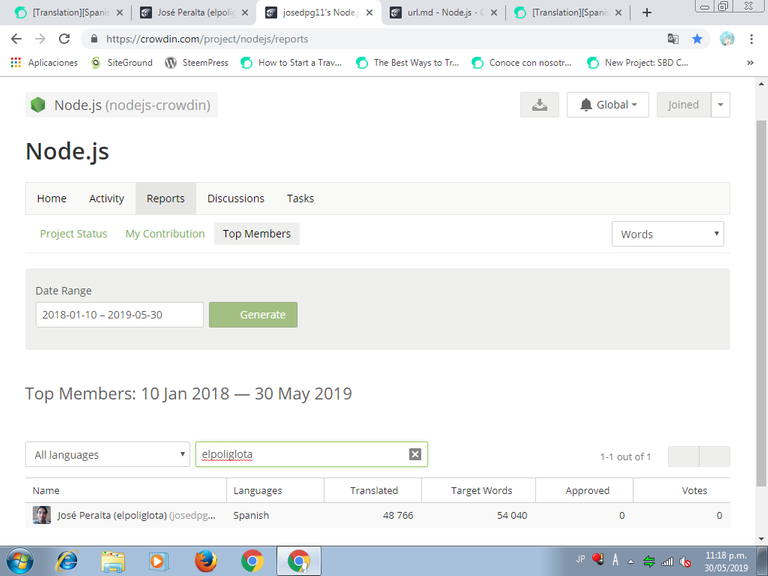
Proof of Authorship
This translation contribution was submitted via Crowdin on May 28th.
For further Proof of Authorship in regards to this contribution you can see my activity on Crowdin here.
Greetings @elpoliglota,
Thank you for submitting your contribution!
Node.js is a very interesting project that contains many code values and terms related to computer science. Its difficulty relies on the fact that we must pay a lot of attention to the code in order to deliver the most accurate translation possible.
Your presentation post includes all the basic information related to the project, interesting concepts and useful examples of your work as a translator.
Regarding your translation, you did a very good job. You used the correct vocabulary and you were careful with code values that should not be translated in order to make sure the text keeps its true meaning.
Keep up the good work!
Your contribution has been evaluated according to Utopian policies and guidelines, as well as a predefined set of questions pertaining to the category.
To view those questions and the relevant answers related to your post, click here.
Chat with us on Discord
Thank you for your review, @marugy99! Keep up the good work!
Hi @elpoliglota!
Your post was upvoted by @steem-ua, new Steem dApp, using UserAuthority for algorithmic post curation!
Your post is eligible for our upvote, thanks to our collaboration with @utopian-io!
Feel free to join our @steem-ua Discord server
Congratulations @elpoliglota! You have completed the following achievement on the Steem blockchain and have been rewarded with new badge(s) :
You can view your badges on your Steem Board and compare to others on the Steem Ranking
If you no longer want to receive notifications, reply to this comment with the word
STOPVote for @Steemitboard as a witness to get one more award and increased upvotes!
Hey, @elpoliglota!
Thanks for contributing on Utopian.
We’re already looking forward to your next contribution!
Get higher incentives and support Utopian.io!
Simply set @utopian.pay as a 5% (or higher) payout beneficiary on your contribution post (via SteemPlus or Steeditor).
Want to chat? Join us on Discord https://discord.gg/h52nFrV.
Vote for Utopian Witness!